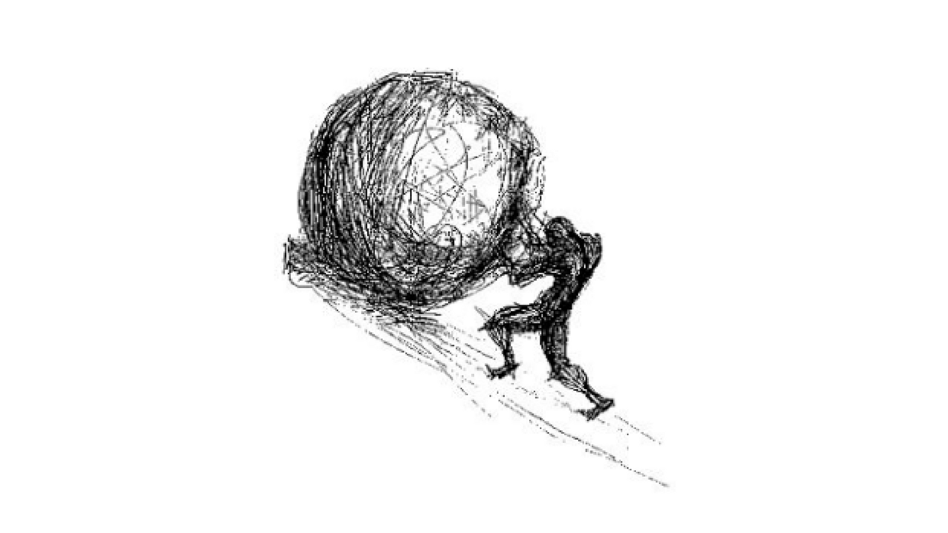Why We Fail

“The more emotional the event is the less sensible people are.”
-- Dr. Daniel Kahneman 2002 Nobel Prize Winner for Economics
Earlier this month, I had the pleasure of meeting a prospective client. My routine for a new ‘discovery’ engagement is to carry three items with me; a blank writing tablet, a pen, and an open mind. Listening and learning are my goals.
I often jump-start the conversation by inviting an answer to this question; “How can I be of good use to you today?” After a brief pause, this couple (early 60’s, professional, empty nest, retirement on the horizon) articulated their concerns about “how high” the stock market was and “how much they lost” in the financial crisis 9 years ago. That experience, combined with the volatility the stock market seems to present every day, has kept them anxious, fearful, and unable to reengage their investment program. For these folks, market volatility is a euphemism for “losing money”, a paralysis-producing perspective that is completely understandable. After all, sharp market declines can be unnerving; it is basic human nature.Although the stock market has had an impressive advance over the last 8 years, powerful memories still linger from the global financial crisis of 2008 and the dot.com bust of 2000. Feelings like these are more easily understood when we consider the following; In the last 90 years, the five most volatile years ever recorded by the S&P 500 stock index — 2000, 2002, 2008, 2009 and 2011, have all occurred since the start of the millennium. For many, these volatile periods can produce a kind of PTSD where emotion paralyzes reason and the quality of investment decisions veers into a downward spiral. Don't take my word, the proof is in the numbers.
In its 2016 annual report on investor behavior, research firm Dalbar examined the behaviors (timing of purchases and sales) and outcomes of the average equity mutual fund investor. The findings are astounding.
For the 20 years ending December 31, 2015, the annualized return for the S&P 500 stock index was 8.2 percent while the average equity mutual fund investor earned only 4.7 percent, a gap of 3.5 percentage points.
Yup, that’s right. More than 40 percent of what the stock market had to offer was frittered away by the typical investor. Now, here is where I should be quantifying the magnitude of this error by applying this shortfall to a $1,000,000 retirement portfolio, invested for 20 years, blah, blah, blah, but I simply don’t have the heart to do the math. And you don’t need me to do it for you.
While it is easy to understand at an abstract level why most investors tend to fail (gleefully buy high, sell low in a panic), the specific, yet powerful, factors that produce failure are less obvious. Although manifold, what I describe below are three hard-wired biases that put mere humans at a significant disadvantage against that mysterious, irrational, but much-needed thing called 'the stock market'.
1. Bad Dominates Good (Prospect Theory)
There is a wide variety of evidence that suggests most people are more sensitive to bad than to good. If we lose $10 we feel a whole lot worse than the amount by which we feel better if we gain $10. Essentially, losses are felt more keenly than gains and linger in our minds far longer. For investors, this emotional bias can be crippling if we are unable to move past the prior market decline and instead allow that bad experience to hold us hostage. The financial crisis of 2008 was a watershed event for many investors, leaving some still hiding in cash, having missed the subsequent rebound.
2. Illusion of the Good Old Days (Anchoring)
People pine for the good old days. We get nostalgic about an era when life was slower, more predictable, simpler…and when the stock market wasn’t so crazy. While few would argue that the pace of our daily lives isn't more hectic, the stock market is doing what it always does; rise, fall, but always trend higher over the long term.
One way in which this emotional bias sneaks its way into our portfolio is when we anchor on a piece of information (price paid for a stock) and allow that information to influence subsequent decisions about future value. Example; If our investment in Company XYZ is currently trading at $100, how are the prospects for XYZ changed if our original purchase price was $50? Or $150? Yup, no change. Better to drive, and invest, by looking through the windshield as opposed to the rear-view mirror.
3. Lazy Man’s Research (Availability Heuristic)
One of the ways we estimate the probability of an outcome is by using a simple, and lazy, rule of thumb. The more easily we can recall an example of something, the more likely we estimate it to occur. Essentially, anything that makes an event more memorable will also make it seem more probable. To this cognitive error, I am a recent victim.
For me, March brings one of the year's great sporting events: the NCAA Men's Basketball Tournament. With great excitement (haste?) and confidence (more haste?) I completed my 2017 tournament bracket, selecting my alma mater, Villanova University, to advance to the national championship game. After all, my team was carrying a No. 1 seed--and my heart--into the tournament so, why not, right? To affirm my conviction, I considered two important data points; 1) Villanova was champion as recently as one year ago and, 2) they won the 2016 championship game in dramatic and memorable fashion.
Outcome? Villanova lost in an early upset to team with a much lower ranking. Shocking? Yes. But what’s worse is that the risk factors were right in front of me; easy recall to prior year with memory enhanced by game ending drama, but I just didn’t see it. Clearly, the human brain is vulnerable to lazy research, which can leave our tournament bracket, and our portfolios, vulnerable to short-sighted, wealth-destroying decision making.
In sum, while it often feels as if the stock market is maliciously conspiring against us, the reality is that it is our very nature as humans that acts to diminish our investment prowess. The human intellect is too limited, human pride too strong, the impulses of greed and fear too powerful, and the lens of nostalgia too rose-colored to have any reasonable chance of breaking the bond of the average investor in the Dalbar study.
What to do? Recognize our flaws, forgive ourselves for these shortcomings and allow the best parts of our humanity to work for us. Astute investors realize they are prone to emotional responses and cognitive errors and combat these risks by choosing the guidance of an independent advisor and a well-crafted financial plan. Investors who firmly commit to this process are less likely to find themselves among the averages in Dalbar’s 2016 annual study of investor behavior.
Recognize, forgive, learn, improve. That’s what being human is all about. And that is the clearest path to long term financial success.
Kevin McVeigh, CFA is a Managing Director and Partner at Exchange Capital Management. The opinions expressed in this article are his own.
Comments
Market Knowledge
Read the Blog
Gather insight from some of the industry's top thought leaders on Exchange Capital's team.
Exchange Capital Management, Inc.
110 Miller Ave. First Floor
Ann Arbor, MI 48104
(734) 761-6500
info@exchangecapital.com




